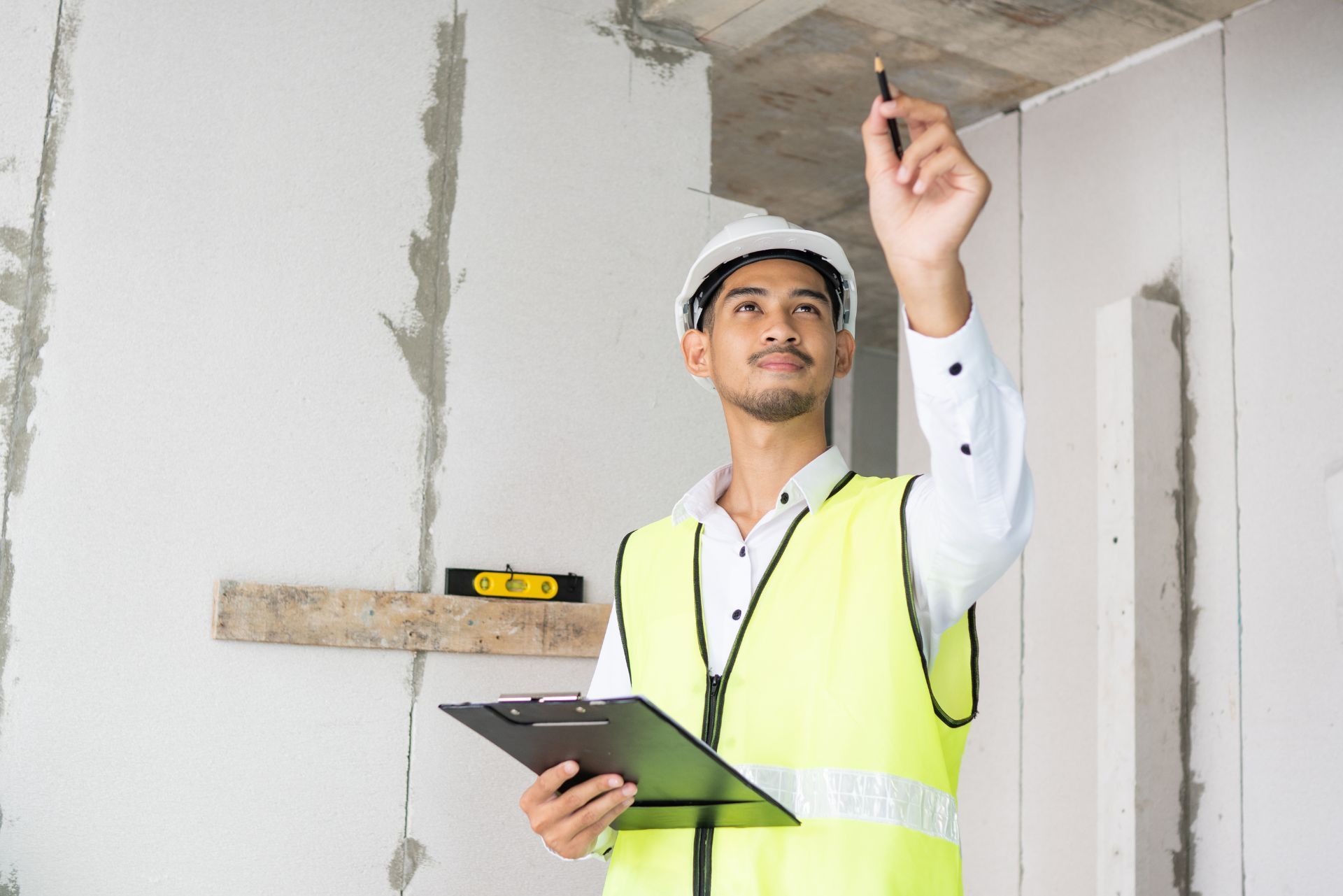In the state of Florida, home inspectors play a crucial role in the real estate process, providing essential assessments of properties for buyers and sellers alike. However, like any profession, home inspection comes with its own set of risks and liabilities. This is where insurance becomes vital. Understanding the types of insurance available, legal requirements, and best practices can help home inspectors protect their business and their clients.
Why Home Inspector Insurance is Essential
Home inspectors are responsible for evaluating the condition of a property, identifying potential issues, and providing detailed reports to clients. Given the nature of this work, the risk of lawsuits and claims is significant. home inspector insurance serves as a safety net, offering financial protection against various liabilities.
Liability Risks
One of the primary reasons for obtaining insurance is to mitigate liability risks. Home inspectors can face claims related to negligence, errors, or omissions in their reports. If a client believes that an inspector failed to identify a significant issue, they may pursue legal action. Insurance helps cover legal fees and potential settlements. Additionally, the real estate market can be highly competitive, and any negative feedback or public claims can tarnish an inspector's reputation, making it even more crucial to have a robust insurance policy in place. The financial implications of a lawsuit can be devastating, not just in terms of legal costs but also in lost business opportunities that may arise from a damaged reputation.
Professional Reputation
Having insurance not only protects the inspector financially but also enhances their professional reputation. Clients are more likely to trust an inspector who is insured, as it demonstrates a commitment to professionalism and accountability. This can be a deciding factor for clients when choosing between multiple inspectors. Furthermore, many real estate agents and brokers prefer to work with insured inspectors, as it reflects a level of diligence and care that aligns with their own professional standards. This relationship can lead to more referrals and repeat business, creating a strong network of trust within the industry.
Peace of Mind
For many home inspectors, knowing they have insurance coverage provides peace of mind. This allows them to focus on their work without the constant worry of potential lawsuits or claims. It fosters a more confident approach to inspections, ultimately benefiting clients through thorough and attentive service. Moreover, having insurance can also encourage inspectors to pursue additional certifications and training, knowing that they are protected while expanding their skill set. This commitment to continuous improvement not only enhances their capabilities but also ensures that clients receive the most accurate and comprehensive assessments possible. In a field where details matter immensely, the combination of insurance and ongoing education can set an inspector apart from the competition.

Types of Insurance for Home Inspectors
There are several types of insurance that home inspectors should consider. Each type serves a different purpose and can provide varying levels of protection. Understanding these options can help inspectors make informed decisions about their coverage needs.
General Liability Insurance
General liability insurance is one of the most common types of coverage for home inspectors. It protects against claims of bodily injury, property damage, and personal injury that may occur during the course of an inspection. For example, if a client trips over equipment during an inspection, this insurance can cover medical expenses and legal fees. In addition to protecting against physical injuries, general liability insurance can also cover damages to a client's property that may inadvertently occur during the inspection process, such as accidentally damaging a wall while moving furniture to access a hidden area.
Errors and Omissions Insurance
Errors and omissions (E&O) insurance is specifically designed for professionals who provide advice or services. For home inspectors, this type of insurance covers claims related to negligence, mistakes, or failures to perform services as promised. If a client claims that an inspector missed a critical issue, E&O insurance can help cover the costs associated with defending against that claim. This type of insurance is particularly important in a field where the stakes are high, as a missed detail in a home inspection can lead to significant financial repercussions for the buyer. Furthermore, many clients now expect home inspectors to carry E&O insurance, as it demonstrates a commitment to professionalism and accountability.
Commercial Auto Insurance
Many home inspectors travel frequently to various job sites. If they use their personal vehicle for business purposes, having commercial auto insurance is essential. This coverage protects against accidents that occur while driving for work, ensuring that both the inspector and their vehicle are protected. Additionally, commercial auto insurance can offer higher liability limits than personal auto insurance, which is crucial when transporting expensive equipment or tools necessary for inspections. Inspectors should also be aware that personal auto insurance may not cover incidents that occur while the vehicle is being used for business, making commercial auto insurance a wise investment for those who are regularly on the road.
Legal Requirements for Home Inspectors in Florida
In Florida, home inspectors are required to adhere to specific legal guidelines, which can influence their insurance needs. Understanding these requirements is crucial for compliance and risk management.
Licensing Requirements
To operate as a home inspector in Florida, individuals must obtain a license from the Florida Department of Business and Professional Regulation (DBPR). This process includes completing a state-approved training program and passing an examination. While insurance is not a legal requirement for licensing, it is highly recommended for protection against potential liabilities. Additionally, prospective inspectors should be aware that the training programs often cover essential topics such as building codes, inspection techniques, and report writing, which are vital for conducting thorough inspections and providing accurate assessments to clients.
Insurance Recommendations by Professional Associations
Professional associations, such as the Florida Association of Building Inspectors (FABI) and the American Society of Home Inspectors (ASHI), often recommend specific types of insurance for their members. These organizations provide guidelines and resources to help inspectors understand the importance of insurance and the types of coverage best suited for their business. For instance, general liability insurance is commonly advised to protect against claims of property damage or bodily injury that may arise during an inspection. Furthermore, errors and omissions insurance is crucial for safeguarding inspectors against claims of negligence or failure to perform their duties adequately, which can lead to significant financial repercussions.
Contractual Obligations
Many real estate contracts may require home inspectors to carry a certain level of insurance. Inspectors should carefully review contracts and ensure they meet any insurance requirements stipulated by clients or real estate agents. Failing to comply with these requirements can result in lost business opportunities. Moreover, being proactive about insurance not only enhances credibility but also builds trust with clients, who often seek assurance that their inspector is adequately protected. This trust can lead to repeat business and referrals, which are vital for long-term success in the competitive real estate market. Additionally, understanding the nuances of different insurance policies can empower home inspectors to make informed decisions that align with their business model and risk tolerance.
Choosing the Right Insurance Provider
Selecting the right insurance provider is a critical step for any home inspector. With numerous options available, it’s essential to do thorough research to find a provider that meets specific needs.
Assessing Coverage Options
When evaluating insurance providers, inspectors should assess the coverage options available. It’s important to ensure that the policy covers all necessary areas, including general liability, errors and omissions, and any additional coverage that may be relevant to their specific business model. For instance, some inspectors may require specialized coverage for unique services they offer, such as radon testing or mold inspections. Understanding the nuances of each policy can help inspectors tailor their coverage to fit their operational risks effectively.
Comparing Costs
Cost is often a significant factor in choosing an insurance provider. Inspectors should obtain quotes from multiple companies and compare the costs of premiums, deductibles, and coverage limits. However, it’s crucial to remember that the cheapest option may not always provide the best coverage. A low premium might come with high deductibles or exclusions that could leave inspectors vulnerable in the event of a claim. Therefore, it’s wise to consider the overall value of the policy rather than just the upfront cost, ensuring that the coverage aligns with the inspector's risk profile and business needs.
Reading Reviews and Testimonials
Before making a decision, it’s advisable to read reviews and testimonials from other home inspectors who have used the insurance provider. This can provide insight into the company’s customer service, claims process, and overall satisfaction among clients. A provider with a strong reputation can offer added confidence in the decision-making process. Additionally, networking with fellow inspectors through industry forums or local associations can yield firsthand experiences and recommendations, helping to identify which providers are most trusted within the community. Engaging with others in the field can also shed light on any potential pitfalls to avoid, ensuring a more informed choice.
Cost of Home Inspector Insurance in Florida
The cost of home inspector insurance can vary widely based on several factors, including the type of coverage, the inspector’s experience, and the size of the business. Understanding these factors can help inspectors budget appropriately for their insurance needs.
Factors Influencing Insurance Costs
Several factors can influence the cost of insurance for home inspectors. These include the inspector's location, the volume of inspections conducted annually, and the types of properties inspected. Additionally, the inspector's claims history can also play a significant role in determining premiums. For instance, inspectors operating in urban areas may face higher premiums due to increased risks associated with densely populated regions, whereas those in rural areas might enjoy lower rates. Furthermore, the nature of the properties inspected—whether they are residential homes, commercial buildings, or historic properties—can also affect the insurance cost, as different types of properties come with varying levels of risk and liability.
Average Premiums
On average, home inspectors in Florida can expect to pay between $500 and $1,500 annually for general liability insurance. Errors and omissions insurance may add an additional $1,000 to $2,500 to the total cost, depending on the coverage limits selected. It’s important for inspectors to obtain quotes tailored to their specific needs to get a more accurate estimate. Additionally, some insurance providers offer discounts for inspectors who have completed specialized training or who are members of professional organizations, which can help lower overall costs. Inspectors should also be aware that premium rates can fluctuate based on market conditions and industry trends, making it essential to stay informed about changes that could impact their insurance expenses.
Budgeting for Insurance
When budgeting for insurance, home inspectors should consider it an essential business expense. Setting aside funds specifically for insurance can help ensure that premiums are paid on time and that coverage remains uninterrupted. Additionally, inspectors should review their insurance needs regularly to ensure they have adequate coverage as their business grows. It may also be beneficial to consult with an insurance broker who specializes in coverage for home inspectors, as they can provide insights into the best policies and help identify potential savings. By proactively managing their insurance costs and understanding the nuances of their coverage, inspectors can protect their business while ensuring compliance with state regulations and industry standards.

Best Practices for Home Inspectors
To maximize the benefits of insurance, home inspectors should adopt best practices in their operations. These practices not only help mitigate risks but also enhance the overall quality of service provided to clients.
Thorough Documentation
Maintaining thorough documentation is essential for home inspectors. This includes detailed inspection reports, photographs, and correspondence with clients. Good documentation can serve as a valuable defense in the event of a claim, demonstrating that the inspector acted professionally and followed industry standards. Additionally, inspectors should consider using digital tools and software designed for the inspection industry, which can streamline the documentation process and ensure that all necessary information is captured accurately and efficiently. By leveraging technology, inspectors can also provide clients with easy access to their reports and findings, fostering a more transparent relationship.
Continuing Education
Staying updated on industry trends, regulations, and best practices is crucial for home inspectors. Engaging in continuing education opportunities can enhance skills and knowledge, ultimately benefiting clients and reducing the likelihood of errors. Many professional associations offer workshops and training sessions that can help inspectors stay informed. Furthermore, inspectors should actively seek out specialized courses that focus on emerging technologies, such as thermal imaging or drone inspections, which can provide a competitive edge and improve the quality of their assessments. Networking with peers during these educational events can also lead to valuable exchanges of ideas and experiences that further enrich their professional development.
Effective Communication
Clear and effective communication with clients is vital. Home inspectors should ensure that clients understand the scope of the inspection, the findings, and any recommendations. This transparency can help manage client expectations and reduce the risk of misunderstandings that could lead to claims. Moreover, inspectors should consider following up with clients after the inspection to address any lingering questions or concerns. This post-inspection communication can reinforce the inspector's commitment to client satisfaction and provide an opportunity to clarify any complex issues that may have arisen during the inspection. Additionally, utilizing visual aids or simple language in reports can further enhance understanding, making it easier for clients to grasp the significance of the findings and the necessary next steps.
Conclusion
In conclusion, home inspector insurance is a critical component of operating a successful inspection business in Florida. By understanding the types of insurance available, legal requirements, and best practices, home inspectors can protect themselves and their clients. Investing in the right insurance coverage not only safeguards against potential liabilities but also enhances professional credibility and peace of mind. As the real estate market continues to evolve, staying informed and prepared is essential for any home inspector looking to thrive in this competitive field.

Contact Us


